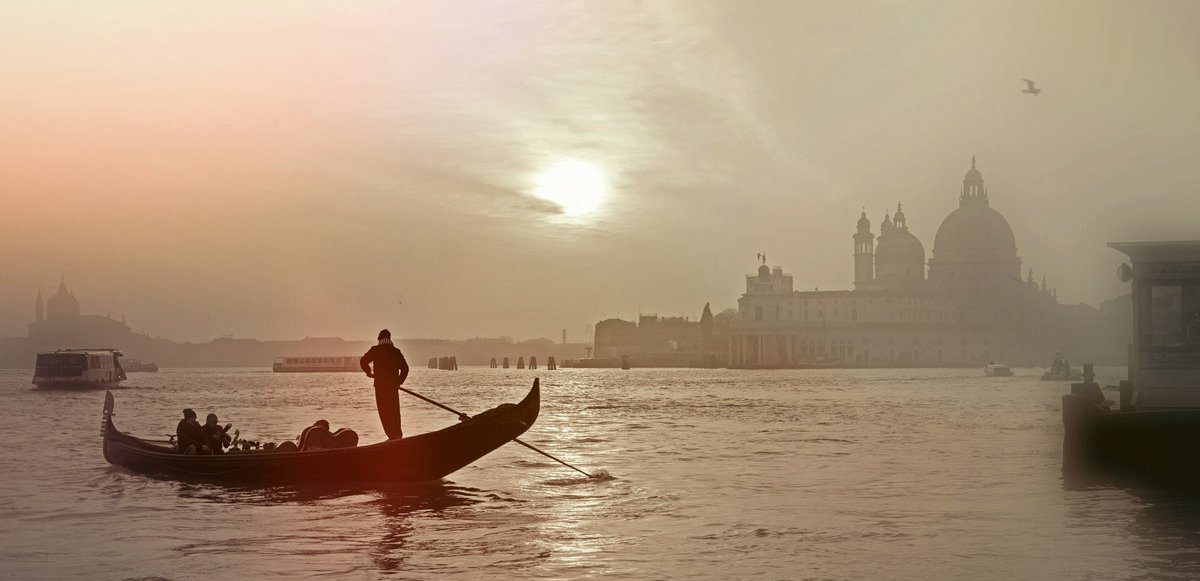“It is at such moments as these that one feels how necessary it is to travel with a full band.” So says the Duke of Plaza-Toro in Gilbert and Sullivan’s The Gondoliers, but how rarely one hears “a full band” in a performance of any of the Savoy Operas nowadays. All too often even the most optimistic listener would struggle to describe the band as half-empty. It is pleasant to record therefore that Cambridge University Gilbert and Sullivan Society’s production of The Gondoliers at West Road Concert Hall last night had a band which if not quite full (the piece calls for a surprisingly large orchestra) was more than equal to the challenges of one of Sullivan’s most ebullient scores. The overture, so often an endurance test in non-professional productions, was dispatched with vim and grace, with a particularly winning oboe solo in the middle section. For the first time I actually wanted it to go on for longer, and then was delighted to find that it did – conductor Richard Decker having opted to extend it with a burst of the Cachucha at the end to give a more rousing conclusion than Sullivan’s original.
Another musical decision I found more questionable – finding a number of brass fanfares in the score Decker had put the brass in the balconies to left and right of the stage. The intention was to evoke the atmosphere of a coronation (the massed trumpeters in the galleries of Westminster Abbey) and for those passages it was effective enough. The drawback was that the fanfares represent under two minutes of music, and for the rest of the evening there was a distinct loss in terms of balance and ensemble. At the climax of the second act the brass got lost entirely, and there were several bars of cacophony before order was restored. This was a particular shame when the musical standard of the rest of the evening was so high.
The Gondoliers was the pair’s last success, and though it was for long one of the most popular of the series there are signs that Gilbert in particular was beginning to run out of ideas. Nothing much happens in the second act, the secondary characters are not terribly interesting and the dénouement, involving swapped babies, is perilously close to that of HMS Pinafore. It will always have a place in my heart though as it was the first of the operas which I performed in (Oxford Playhouse, 1988, in the role of Twelfth Gondolier, since you ask), thus inaugurating my long career of bit parts in amateur musical theatre. As such I well recognise the challenges of putting on a show of this kind when everyone involved has day jobs to do, essays to write or lectures to attend. The wayward follow spot, the principal unaccountably absent from the wings when his entrance is due, the chorus member on the wrong side of the stage for the curtain call – all these are very familiar. In a dull production you wince at such things, in a good one they just add to the fun.
Though to some extent an ensemble piece with music and dialogue shared out among an unusually large number of principal roles, any production of The Gondoliers stands or falls by its central quartet of the two gondoliers and the girls whom they marry. In this production the title roles were taken by Seb Blount as Marco and Owen Elsley as Giuseppe, with Tiffany Charnley as Gianetta and Louisa Stuart-Smith as Tessa. That they all sang superbly is almost a given – Cambridge abounds in good singers – but they also played together beautifully, and the dialogue scenes, which can drag if not carefully paced, bounced along with the perfect amount of wit and sparkle. Of the other principals, Peter Coleman as Don Alhambra stood out for clarity of diction in his two solos, but there were no weak links anywhere in the cast (and given the number of solo parts in this show these can be horribly exposed).
West Road isn’t an ideal venue for operetta but Rose Painter’s production made good use of its wide stage, with a simple but effective set aided by creative lighting. The Gondoliers is a particularly rewarding show for the chorus – in an ideal world we would have wanted more men, but those that there were sang valiantly, aided by a few women en travesti. The dancing could probably have done with more rehearsal time, but everyone was game and the stage was always full of interest and movement. There were of course new sight gags and topical references (a reference to Boris Johnson’s “work event” went over particularly well) but the director had a good sense of when such things are welcome and when they are not. I have seen productions where the clowning never stops, but the Savoy operas have a delicate balance of the silly and the serious, and such numbers as “There was a time”, “When a merry maiden marries”, “Kind sir, you cannot have the heart” and “Take a pair of sparkling eyes”, all beautifully sung, were wisely left to speak for themselves.
William Hale

